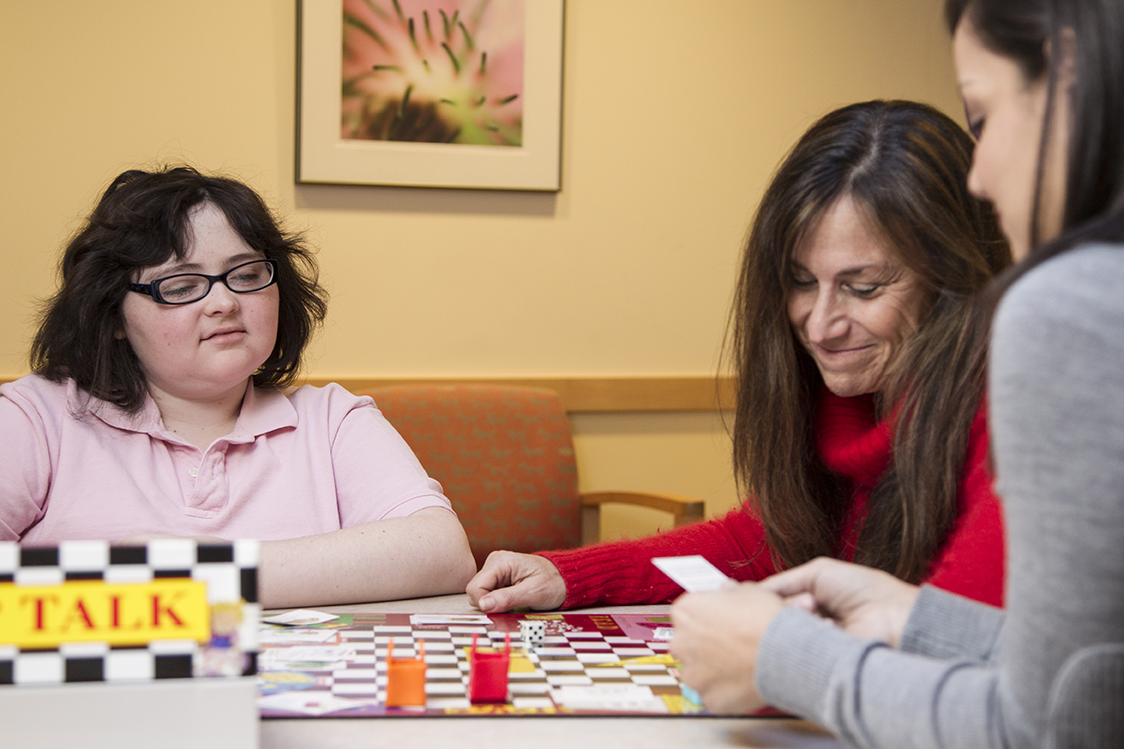Research is another critical component of the psychosocial program. Our research studies are designed to learn how to best help patients and their families prepare for, adjust to, and cope with the effects of cancer and other related medical conditions while enrolled on research protocols in several NCI Branches and NIH Institutes.
Our current research is aimed at examining children's coping and distress, adolescent and young adult issues, parental needs and adjustment, sibling issues, mental health challenges, and development of interventions, such as workbooks and board games designed to meet the needs of critically ill children and their families.
Patients and families are invited to participate in psychosocial research protocols while they are undergoing treatment at the NCI. You and your child may be eligible to participate in some of the current research initiatives.
For an overview of our available clinical services, please visit our clinical program.
Behavioral Health Support for CCR Clinical Trials
Along with the group’s own research, the Psychosocial Support and Research Group supports the clinical trials of NIH principal investigators by developing psychosocial research objectives and methodologies, including quality of life assessments and in-depth qualitative interviews to assess psychosocial and behavioral outcomes. Read more about the program's studies below.
Longitudinal Early Advance Care Planning Discussions and Documentation (LEADD) Program: An Exploratory Study in Adolescents and Young Adults (AYAs) Receiving Hematopoietic Stem Cell Transplant
This study aims to determine if AYAs who undergo hematopoietic stem cell transplant and their caregivers benefit from discussing advanced care planning topics, such as their values, priorities, and goals. Learn more about this study here.
Voicing My CHOiCESTM as a Tool for Advanced Care Planning in Young Adults with Metastatic, Recurrent, or Progressive Cancer
This study is being conducted to determine the helpfulness of Voicing My CHOiCESTM, and to determine if advanced care planning with young adults has psychosocial effects. Voicing My CHOiCESTM is an end of life planning guide that was developed during prior research based on adolescent and young adult feedback that they wanted to part in their care planning.
Checking Out Checking In: The Development and Validation of an Electronic Screening Measure of Psychosocial Distress in Patients with Cancer and Other Chronic Illnesses
This study is designed to develop a brief electronic screening tool, Checking In, which would assist clinicians in assessing the presence of psychological distress in children and adolescents with cancer and other serious medical illnesses.
Understanding the Influence of Childhood Cancer on the Parents’ Marital/Partner Relationship
This study was designed to explore whether the stress associated with having a child with cancer is perceived to impact the marital/partner relationship, and if so, which time points and events during the cancer trajectory is the relationship most stressed and/or strengthened.
Pilot Study of Educational Interventions in Pediatric Hematopoietic Stem Cell Donors to Increase Donation and Transplantation Procedure Knowledge
This study was designed to assess sibling stem cell donors’ understanding of transplant procedures and to learn if certain educational interventions impact their knowledge and anxiety prior to donating their stem cells. The study also helps to identify donors who may require additional preparation prior to stem cell collection.
Pediatric Amputation: The Experience of a Pediatric Amputee in Preparation for Surgery
This is a pilot study designed to gather qualitative information from older adolescents and adults who experienced an amputation in childhood. Areas of interest include the level of involvement in deciding to pursue amputation, the quantity and quality of preparation pre- and post- limb removal, as well as thoughts pertaining to helpful pre-surgical interventions. Outcomes of this study will be used to improve emotional preparation for pediatric amputation.
